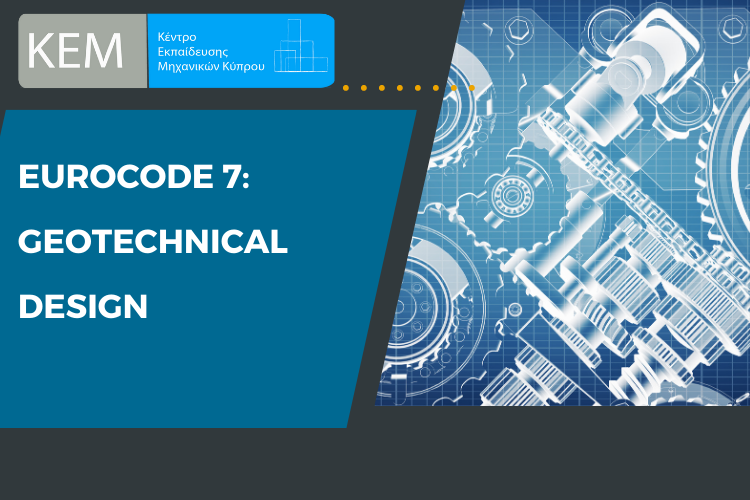-
Date and Time
Day 1
Session 1
Introduction to Eurocode system &
Basics of EN 1990 and EN 1997 (Parts 1 and 2)
Session 2
Specific aspects of EC 7
Associated standards
Session 3
Design of spread foundations
Session 4
Design examples of spread foundations
Day 2
Session 5
Design of pile foundations
Session 6
Design examples of pile foundations
Session 7
Design of retaining structures
Session 8
Design examples of retaining structures -
Purpose
The structural Eurocodes are a set of unified international codes of practice for designing buildings and civil engineering works, and will replace National Codes. They are linked de-facto with EU legislation e.g. the Construction Products Directive and Public Procurement Directives, and their adoption will provide opportunities and benefits to the profession. There are ten Eurocodes with a total of 58 parts covering Basis of Structural Design, actions, the main structural materials, and geotechnical and seismic design. The rules for geotechnical design are given in Eurocode 7 (Parts 1 & 2). In these parts necessary information is given for the calculation of the geotechnical actions on structures and of the geotechnical resistances (bearing capacity, earth pressure resistance, sliding resistance, etc.). -
Objectives
Upon completion of the course the participants should:
- Become familiar with the philosophy and provisions of Eurocode 7 part 1 and part 2
- Become aware of the Cyprus National Annex for Eurocode 7 part 1 and the Nationally Determined Parameters
- Be able to apply the provisions of the code to engineering problems
-
Topics
- Introduction to Eurocode system &
- Basics of EN 1990 and EN 1997 (Parts 1 and 2)
- Specific aspects of EC 7
- Associated standards
- Design of spread foundations
- Design examples of spread foundations
- Design of pile foundations
- Design examples of pile foundations
- Design of retaining structures
- Design examples of retaining structures
-
Participants
The candidates should be civil engineers and fulfill one of the following criteria:
- Designers
- Contractors
- Resident/Site engineers
- Employees of Technical Services Departments
- Consultants
-
Methodology
- Lectures
- Discussion
- Design examples
-
Other Details
None.
EN 1997 (EC 7): Geotechnical Design
The structural Eurocodes are a set of unified international codes of practice for designing buildings and civil engineering works, and will replace National Codes. They are linked de-facto with EU legislation e.g. the Construction Products Directive and Public Procurement Directives, and their adoption will provide opportunities and benefits to the profession. There are ten Eurocodes with a total of 58 parts covering Basis of Structural Design, actions, the main structural materials, and geotechnical and seismic design. The rules for geotechnical design are given in Eurocode 7 (Parts 1 & 2). In these parts necessary information is given for the calculation of the geotechnical actions on structures and of the geotechnical resistances (bearing capacity, earth pressure resistance, sliding resistance, etc.).
code:KEE-EC7
